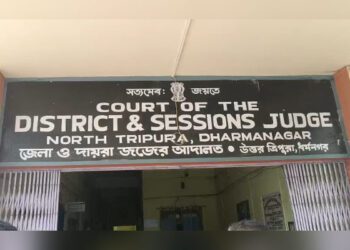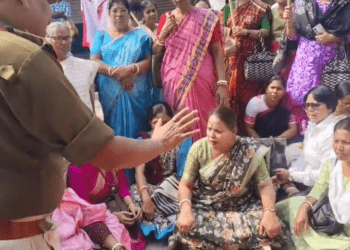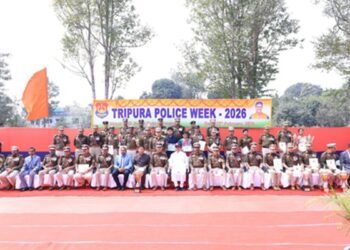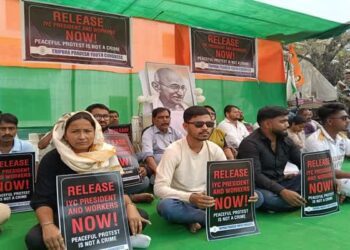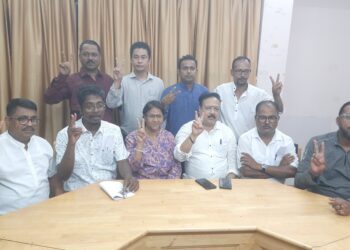Reaffirming the state government’s commitment to uplifting Janajati communities, Tripura Chief Minister Dr. Manik Saha on Friday announced several major welfare initiatives focused on education, livelihood development and overall socio-economic progress. Speaking at the Janajatiya Gaurav Diwas celebration held at Khumulwng, the Chief Minister stated that the tribal communities of Tripura form the very foundation of the state’s cultural identity and heritage. Their traditions, customs and rich legacy, he said, have long enriched the social fabric of the state.
Highlighting the government’s priority towards tribal welfare, Dr. Saha emphasized that ensuring rights, dignity, land security and access to development remains central to the administration’s efforts. He reiterated the state’s goal of taking development benefits to every tribal household.
Among the key announcements, the Chief Minister revealed that 34,000 students are currently receiving hostel scholarships, with an addition of 2,700 new seats planned this financial year. Hostel scholarship rates will also be increased from Rs. 80 to Rs. 100 per day beginning December 1, 2025. A 100-bed boys’ hostel for college students will be constructed at Abhoynagar, Agartala at a cost of Rs. 5.74 crore.
The government also extended support to NGO-run hostels by allocating Rs. 90 lakh for sports equipment. Smart classrooms, already installed in 100 ST hostels, will be expanded to 70 more hostels with an investment of Rs. 2.80 crore. Under the Chief Minister Tribal Development Mission, solar-powered water purification units will be set up in 50 tribal hostels, supported by Rs. 19 crore.
Further, 500 electric autos will be distributed among unemployed tribal youths, while 30,000 tribal women weavers will receive yarn support amounting to Rs. 3 crore.
The event also featured a grand cultural performance where 1,000 Janajati boys and girls presented the traditional Mamita Dance at Khumpui Academy. Later, the Chief Minister wrote on social media that Janajati communities remain central to Tripura’s cultural heritage and that their welfare is the government’s highest priority.



